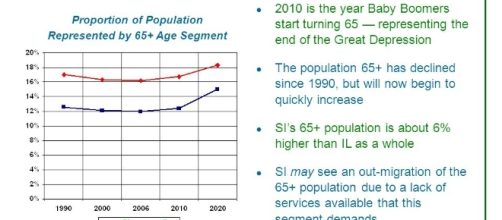I’ve all but completed my 65th year on Earth and to that end, there are a few things I’d like to share with up-and-coming seniors. First of all, know that it’s nothing personal when your doctor gets a little more personal and inquisitive about your health. Recently, as my doctor scanned my chart, he casually mentioned setting up an ultrasound of my abdominal aorta.
Turns out I wasn’t dying but the medical community figures 65 to be the average age our main, main artery can present with an aorta aneurysm. Usually the symptoms are painless but detectable by ultrasound.
Apparently, 65 is also the age that my doctor schedules x-rays for chronic neck pain sufferers since I’ve complained about mine for years and was just now scheduled for X-rays. Other unpleasant medical investigations ordered by my doctor this year include a colonoscopy, endoscopic examination and a plethora of vaccinations for everything from bacterial pneumonia to shingles.
Age-related afflictions
While age-related afflictions from arthritis to facial wrinkles (that range from mildly depressing lines to unnerving skin folds apt to prompt queries of an automobile accident) can put a dent in one's self confidence, turning 65 in reasonably good health and relatively comfortable in our wrinkled hide is in and of itself cause for celebration.
Beyond invasive, embarrassing medical procedures and wrinkles, for U.S. seniors there is a business end to aging that should not be neglected.
- At age 65 most Americans are eligible to enroll in Medicare Part A and Part B. (outpatient care). Seniors may and should enroll up to three months before their 65th birthday for coverage to begin on their birthday.
- Consider a Medicare Part C managed care plan. Many people age 65 and older enroll in a Medicare Part C Medicare Advantage HMO or other managed care plan. These plans provide more extensive coverage than Medicare Parts A and B and are less expensive than a comparable private Medigap supplemental insurance policy. A drawback is healthcare providers but some Part C plans include prescription drug coverage.
- Medicare Part D prescription drug plan. Many seniors enroll in a Medicare Part D prescription drug plan to save money on prescriptions.
- Medigap insurance policy to supplement Medicare. Medicare can leave seniors in debt for a significant portion of their medical costs. To fill the gap in coverage, many people purchase a private Medigap supplemental insurance policy. Beware: the government restricts your choice to purchase a policy to six months after you enroll in Medicare Part B.
Managing the business end of aging is as important if not as urgent as managing your healthcare; in fact, these programs are intricately woven into the medical system to ensure that seniors have access to all of the aforementioned medical tests, vaccinations, and procedures that seem to multiply exponentially for those of us fortunate enough to be officially designated senior citizens.

